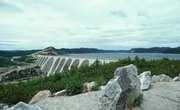Engineering is an application of mathematics, physics and other scientific principles to real world problems. Engineers are among the most in-demand professionals in the world and can work in a variety of fields for all kinds of employers. All engineering professions require at least a bachelor’s degree. After completing the bachelor’s degree, students who are interested in managerial positions often pursue master’s degrees, while those who want to pursue research get doctorates in engineering.
Areas of Concentration
The bachelor’s degree in engineering is a challenging program that requires a substantial amount of coursework in mathematics and natural sciences in addition to the core and elective engineering classes. Because engineering is such a broad field touching on so many different and distinct areas, most engineering degrees either offer concentrations within the major or separate majors for each type of engineering. Examples of majors or concentrations include mechanical and civil engineering, which deals with the design of complex machines and infrastructure, computer and electrical engineering, chemical and biomedical engineering, and aerospace engineering. Some areas require more mathematics or physics courses, and all have different upper-division course offerings.
Prerequisites
Like all bachelor’s degree programs, engineering degrees require some general education classes in subjects like the social sciences and humanities, as well as a writing class. The number of these courses and the available choices depend on the program. Apart from the general education classes, students have to fulfill a number of math and science prerequisites in order to take upper division engineering classes. In particular, all engineering programs require at least calculus 1 and calculus 2, with some programs requiring calculus 3 or above. Most programs also require introductory classes in chemistry and physics, while some concentrations also require advanced physics courses like fluid dynamics or thermodynamics.
Core Engineering Courses
Each engineering major or concentration area is highly specialized and the core course requirements tend to vary widely. A chemical engineering major may take classes like chemical engineering fundamentals, organic chemistry and chemical engineering thermodynamics, while an electrical engineering major may take introduction to digital design, digital signals and filtering, and electromagnetic fields. Even though there is a fair amount of similarity in the basic engineering principles involved, because engineering is an applied science the particular courses will differ based upon the application.
Engineering Electives
Despite the large number of core requirements that each engineering major or concentration generally requires, most programs allow students to choose some upper-division courses from a set of potential electives so they can pursue areas of particular interest. Examples of elective courses include civil engineering classes like introduction to sustainable design; computer engineering classes like bio-instrumentation and sensing; or courses outside the engineering curriculum like patent law or business economics. These courses help students understand where the work of engineering fits into the larger economic environment.
Related Articles
References
Writer Bio
Kate Prudchenko has been a writer and editor for five years, publishing peer-reviewed articles, essays, and book chapters in a variety of publications including Immersive Environments: Future Trends in Education and Contemporary Literary Review India. She has a BA and MS in Mathematics, MA in English/Writing, and is completing a PhD in Education.











